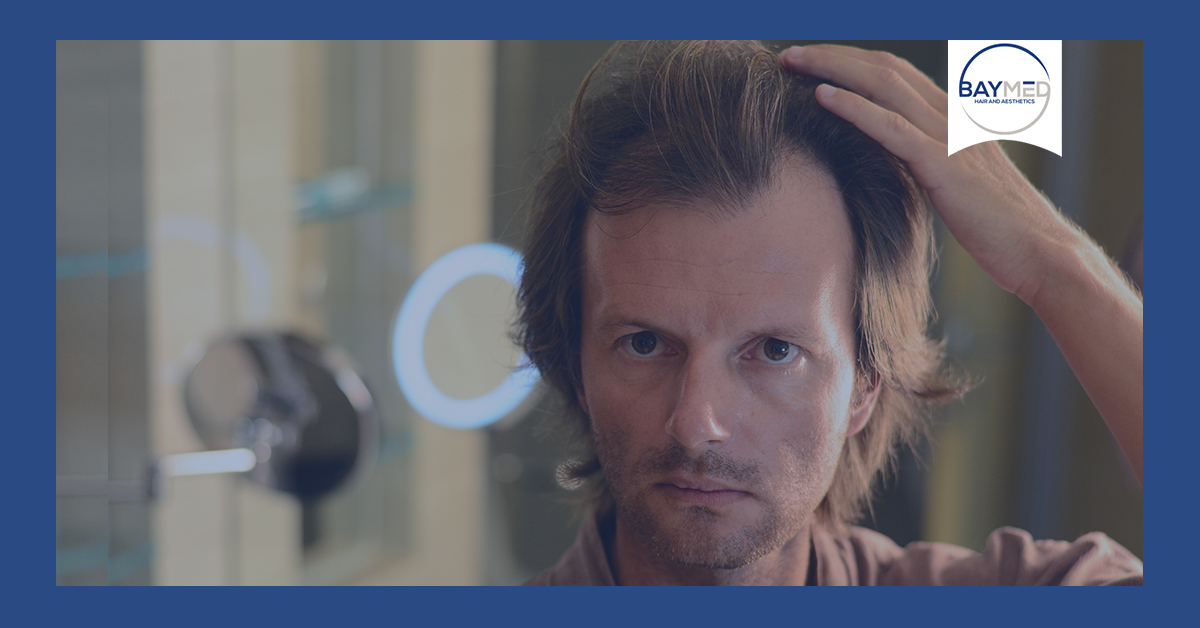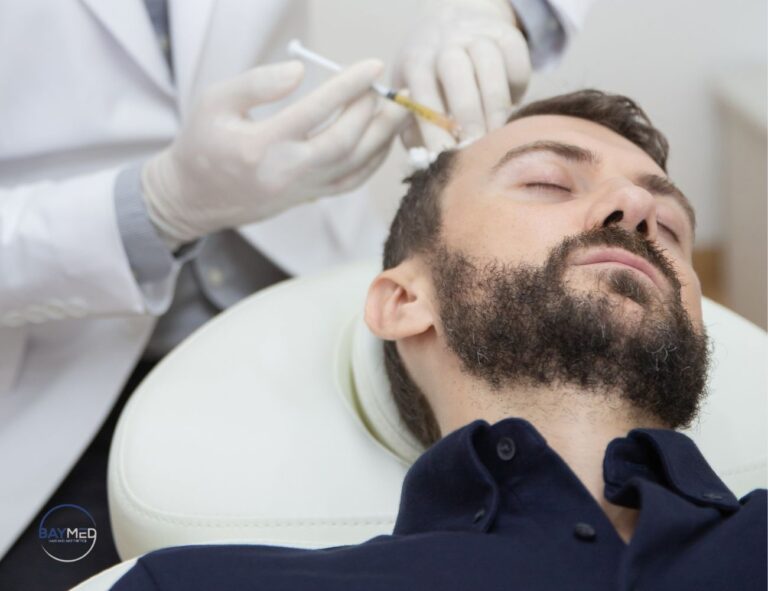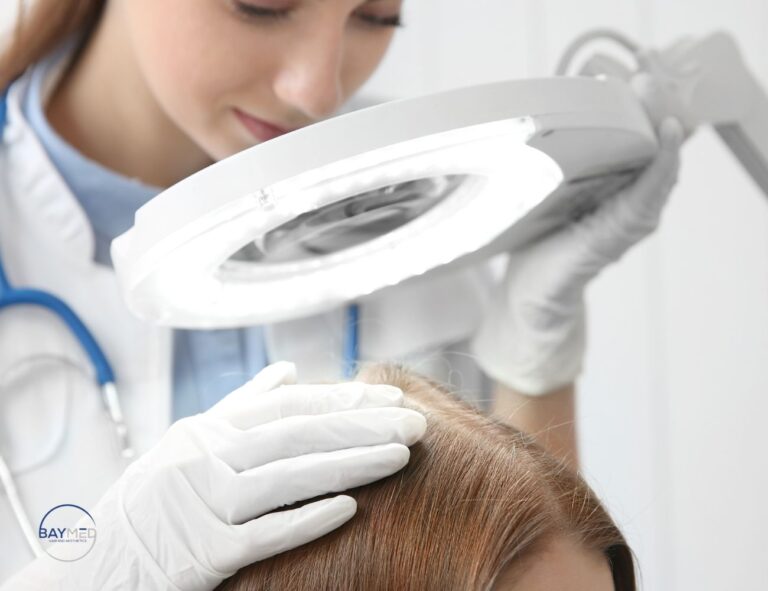Most people don’t really understand how their hair works, much less that it goes through three stages of growth and shedding. That’s because most of the time most of our hair is in the anagen stage – the phase where it is actively growing.
But at any given time, about five percent of our hair is in the catagen stage – a kind of transition stage between growing and resting. It transitions into the telogen phase, or resting phase, and then eventually falls out so new hair can grow. Normally only about five percent of our hair is in the telogen stage.
So, if hair normally falls out in the telogen stage then what is telogen effluvium and why is it bad?
What Is Telogen Effluvium?
According to the National Institutes of Health, most hairs fall out every three to five years. When it happens faster (or more widespread than usual), it might be a case of telogen effluvium.
The American Osteopathic College of Dermatology says telogen effluvium “[…] is when some stress causes hair roots to be pushed prematurely into the resting state.” In short, some sort of shock or trauma causes stress to your body, and it is making your hair fall out.
And that “old wives’ tale” about being so scared that your hair fell out? Well, it’s sort of true.
What Triggers Telogen Effluvium?
When the body has a major trauma – like severe illness (including COVID-19), some forms of cancers, and other stressors – it can decide that spending energy growing hair just isn’t worth it. Instead, it tells the hair cells to rest and then they start falling out.
But that isn’t the only cause of telogen effluvium. Your hair can switch states because of an environmental trigger, a hormonal change, or dietary issues. When these types of acute cases happen, they are usually quick and centered toward the top of the scalp. The hair often starts to regrow naturally in four to six months.
Unfortunately, a mass resting of your hair cells can look like many other forms of hair loss to the average person. That’s why a professional consultation is so important.
Does Biotin Help with Telogen Effluvium?
Research shows there is no statistical difference in the biotin levels of people with telogen effluvium and those without it. But it is a popular treatment for hair loss?
Biotin is an essential building block in the growth of hair and nails, so scientists believed it might help. Because telogen effluvium usually results in hair growth once the hair shifts back into the anagen phase, biotin treatment can look like it worked.
BayMed Hair Can Help Understand Your Hair Loss & Choose the Right Treatment
If your hair loss is caused by telogen effluvium, the specialists here at BayMed Hair can help you figure out what might be causing it and when you might see your hair growth return. And if that isn’t the cause of your hair loss, we can help you figure out what is and how to treat it. Call us today to reclaim your hair and your self-confidence.






